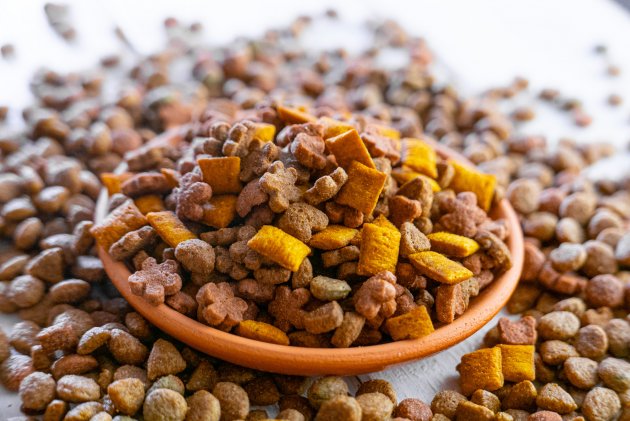With all the dog foods on the market, it’s difficult to know what is good and what is not. According to the manufacturer's advertisements, their product is far superior to the rest, but what is truth and what is fiction in the world of dog food?
Unfortunately, the answer is not always as simple as reading the product label. In this post, we will cover the additional ways on how to know your dog food is worth the money.

1. Appropriate For Your Specific Dog?
Just like you wouldn’t feed guinea pig pellets to your dog (or at least, you shouldn’t) giving your canine companion the best nutrition isn’t as simple as grabbing any bag of generic kibble.
Most manufacturers of high-end dog food have gone the extra mile to ensure your dog is getting the most appropriate diet possible for its specific needs. This means the diet is based on your pet’s age, activity level, breed, weight, and health.
Dog foods that claim to be “all life stages” may seem like a great idea in theory; however, senior dogs or those with other health concerns may receive excess nutrients that could result in poorer health.
2. Manufactured With Strict Quality Controls?
Is your pet food manufactured in their own facility or it is off-site? This may seem like an “insignificant” point; however, foods that are processed on-site have better quality control over both the ingredients and how they are processed. A good example of this would be food processed on-site can be held until they can confirm that it meets safety standards before being shipped to the retailers. This cuts down on the likelihood that the company will have to issue a recall on their product (which, in turn, makes the food safer for your pet’s consumption).
3. Does Your Food Have the AAFCO Stamp of Approval?
Look for the AAFCO (Association of American Feed Control Officials) stamp of approval on your dog food bag. This is the “gold standard” of feeding trials. Brands that have gone through the AAFCO process have been tested in the strictest guidelines and have been proven to have the proper nutrition for your pet.
This is what to look for; “Animal feeding tests using AAFCO procedures substantiate that [Name of Dog Food Company] provides complete and balanced nutrition."

4. Does Dog Food Contain Quality Ingredients?
It’s difficult to know exactly what your dog food contains, as companies can use “ingredient-splitting” and other fancy wording to “hide” some of the more inferior ingredients in their products. For this reason, it's worth the time to learn exactly what ingredients are being used in your dog food brand. To do this, you may have to dig deep into the "lingo" being used on the label. For example, any time a company uses the wording "by-products" regardless of the meat source, this means the protein is not pure, but rather a "by-product" of that source (legs, beaks, feather, etc.).
Another good example is when the label lists "meat" without a specific source. This could be any type of animal including those that have died from disease and those not fit for human consumption.
5. Don’t “Buy” Into the Current Trends or Hype
Many dog food companies are playing into the latest trends of human diets - grain-free, gluten-free - to sell their products. However, unless your dog has a severe allergy to grains or gluten (which will take a veterinarian to diagnose properly) these fad-foods may not necessarily be appropriate for your pet. For normal, healthy canines, grains are not a bad thing and can actually be good when used in the proper ratio. Two of the main benefits of grains in dog food are to provide your dog with energy and a source of fiber to keep it regular.
6. Company Transparency
If you have a question about dog food, the company should be willing and able to address your concerns. Whether you are inquiring about what the food’s primary meat source is or why they use a specific ingredient, the manufacturer should be happy to answer your questions in a calm, friendly, and open manner.
Another indication of complete transparency in a dog food manufacturer is one that offers you the option of tracking the origins of the ingredients as well as any recalls on the product. Once again, check the web site to see if they offer a “lot number tracking” form that will give you access and immediate details on the particular bag of food.

7. Formulated by Experts
Good dog food has been formulated by veterinarians, scientists, and canine nutritionists. These experts have studied this field and are the best prepared to formulate a healthy and well-balanced diet for your dog. Check the company’s web site or read over the product package for information (or the lack thereof) to see if any of these industry professionals have had a hand in formulating your pet’s food.
Conclusion
Although a great place to start on your search for the perfect dog food, it takes more than just reading the side of the bag or going on the recommendation of the sales “team.”
Finding the best dog food for your money will take research into the company itself to assess how the food is manufactured, where it is produced, and who oversees the process. Once you have all the information, you will be better prepared to choose the best diet for your dog.
Further reading and references:
- The National Academies of Sciences, Engineering, and Medicine. Your Dog's Nutritional Needs: A Science-Based Guide for Pet Owners
- University of Illinois. Lauren Quinn. First study on human-grade dog food says whole, fresh food is highly digestible
- Michigan State University. Elisabeth Anderson, Jinpeng Li. Dog Food – Pulses Ingredients